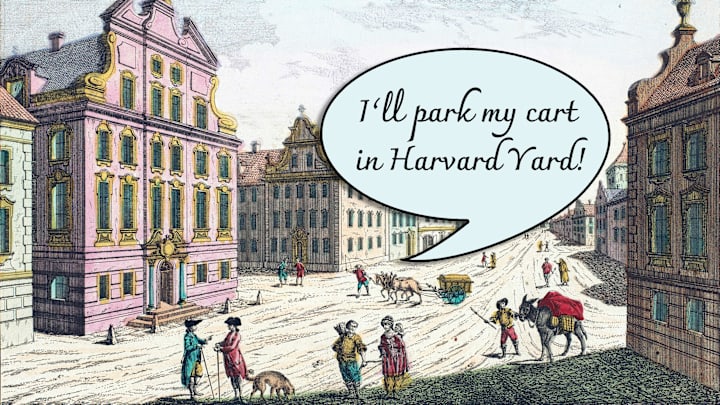Accents are pretty complicated things. Linguistically speaking, the modern British accent is known as Received Pronunciation, or RP.
There are a ton of different accents in the UK, but the Oxford English Dictionary defines RP as “the standard accent of English as spoken in the south of England.” And that's what Americans typically mean when they say “British accent.” There's a flip side to that, too: Americans have tons of different accents, but the general “American” accent is what a British person would call an “American accent.”
When colonists from England arrived in North America, both accents were rhotic, like an American accent. Rhoticism means the letter R is pronounced in words like hard and park. In Received Pronunciation, that R sound isn’t pronounced. Obviously, there aren’t any recordings from the 17th century, so we can’t know for sure what British and American people sounded like. But linguists are pretty sure both were rhotic because the R is present in those words, so it’s probably supposed to be pronounced.
Experts have also observed that it wasn’t until the late 18th century that British people started to write words like hard or park while omitting the R for time in shorthand notes.
So, where did the modern British accent come from? According to the Cambridge History of the English Language, the Received Pronunciation emerged in southern England during the Industrial Revolution. People who were born into lower social classes and then became wealthy developed a way of speaking so they could set themselves apart from the social class they had surpassed. “London pronunciation became the prerogative of a new breed of specialists—orthoepists and teachers of elocution,” according to the Cambridge History. “The orthoepists decided upon correct pronunciations, compiled pronouncing dictionaries and, in private and expensive tutoring sessions, drilled enterprising citizens in fashionable articulation.”
So, if you ever see a movie or play that takes place in Britain before the 18th century, those characters should be speaking in “American” accents.
Read More Stories About Accents:
A version of this story was published in 2015; it has been updated for 2024.
